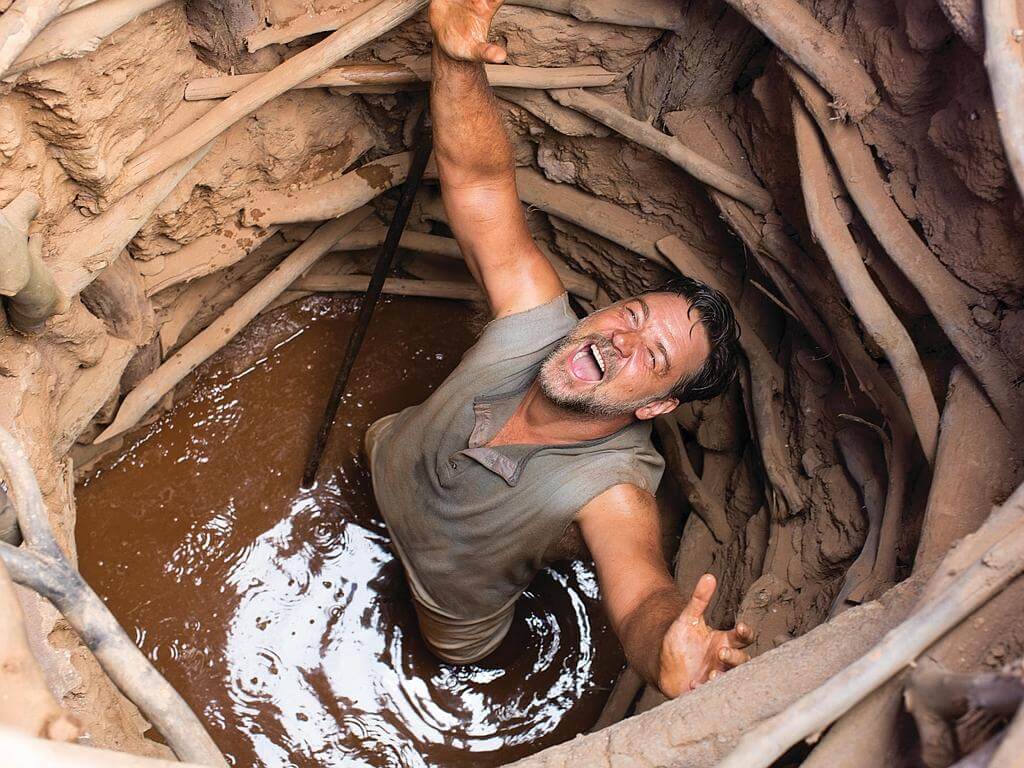‘The Water Diviner’ Russell Crowe’s directorial debut, the war drama “The Water Diviner,” can’t really be accused of being a pompous actor’s dream project, in part because it avoids comforting cliches, and in part because it’s not sure what the hell it is. It’s three, maybe four movies smashed gruesomely into each other, as though Crowe was afraid he’d never direct again. It certainly should have a clean, simple throughline: Crowe plays Connor, a father in remote Australia whose three sons are alleged to have died in the Battle of Gallipoli. Unwilling to live without uncertainty — and further haunted by the suicide of his grieving wife — he heads off to Turkey himself to find their whereabouts, even if that simply means locating their graves. But that’s understandably not enough for a movie, especially since he learns fairly early on that two of the three are definitely dead. And so “The Water Diviner” gives Connor Ayshe (Olga Kurylenko), an Istanbul widow and hotelier, to woo, transforming her from a bickering, anti-Australian bigot into a dreamy-eyed love object. She also has a young, excitable son, so he can indulge in paternal instincts. The actual search for his sons, takes him to former enemy territory and forces him to mingle with the very men who may have caused their deaths. This isn’t, however, a takedown of evil Turkey; on the contrary, it’s a noble attempt to create a bridge between once-warring nations. It’s more than that: the Turkish characters are not just blandly nice; they’re allowed three dimensions. Connor’s chief contact is one Major Hasan (Yilmaz Erdogan, of “Once Upon a Time in Anatolia”), a proud man who is nonetheless haunted by what he did in the war. “Some things should never be forgotten,” he crows at one point, and at its best “The Water Diviner” is about not only the after-effects of war but about living with horrors, even ones done for what one sees as just reasons. Hasan waffles on helping the quietly stubborn Connor in his search. Overall there’s a vibe of peace and community-building; even the Greeks who battle Turkey once WWI ends aren’t so much evil as just another group in just another war. Of course, such introspection doesn’t fly with relatively pricey war dramas, even ones helmed by and starring a superstar. And so Crowe has to throw in a scene of him beating up some guys for barely tangential reasons, plus a bloody massacre, plus a climactic showdown. It’s not clear who’s responsible for Connor’s dopily relevant profession, wherein his talent at divining water is supposed to compare/contrast with his search for his AWOL boys. Presumably the bits towards the beginning of him stripping down to very little to show his combination muscles-and-beer-gut while he digs a well is all some old-fashioned self-love. As a director, he’s all over the place too. Parts of “The Water Diviner” have the placid vibe to match Crowe’s own performance — one that, excepting one shout to the heavens, finds him internalizing Connor’s anguish. This isn’t an Ashley Judd movie where our intrepid hero marches into rooms and demands blood through quip-drenched speeches; it’s one where our hero shows persistence through cool, patient behavior. Other times he over-indulges in white noise shots of sun-dappled landscapes, and others still find him awkwardly stitching over footage he either had to excise for length or simply never shot. Connor and Ayshe fall in love mostly through wordless montages, one involving some hideous after-the-fact slo-mo water splashing. He even struggles to find a spot for the film’s most brazen set piece: one son moaning for hours as he bleeds to death, which would have made more sense later than it comes. Now that Russell Crowe, director, has gotten certain proclivities out of the way he might be able to make a follow-up that only does what he now knows he’s good at.
Director: Russell Crowe
Stars: Russell Crowe, Olga Kurylenko
Rating: R
2 (out of 5) Globes
Review: ‘The Water Diviner’ is Russell Crowe’s messy directorial debut

Warner Bros. Pictures
Follow Matt Prigge on Twitter @mattprigge


















